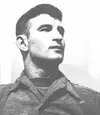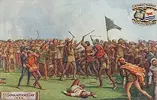Was re-reading Edwin Black's superb "
IBM and the Holocaust" a couple of days ago, and was struck by the story of Rene Carmille. All of the below comes from Black's book, which should really be read by everyone. I've only posted it here because I'd never heard of him before reading that book, and he seems to be little-known in the English speaking world (and wasn't mentioned on this thread).
Carmille was a statistician and senior military civil servant who, after the fall of France in mid-1940, quickly volunteered his services to the Vichy regime who were following out Nazi instructions to take a census, with particular emphasis on identifying the number of Jews (French and foreign), their locations etc etc. Previous attempts had been made but because of the incredible complexity in the pre-computer age, only Carmille (who was an expert in and had access to punch-card technology) could provide a record of every person in France.
The census was carried out in mid-1941, and Carmille managed to convince Vichy (and the Germans) to put a huge chunk of the demographic analysis work into his hands, so much so that the first roundups of Jews in France (ordered to fill quotas sent out by Adolf Eichmann) relied almost on self-declarations (the cops in Paris sent letters out to where they thought foreign Jews were living, then relied on them to turn themselves in). When this only resulted in half the expected numbers being caught (and sent to camps) the local cops tried raiding Jewish neighbourhoods, but this didn't work to the required level either.
Things were so disappointing for Eichmann that they went after the French Jewish Council for names, telling them to turn over the names of any people who turned up at their offices wanting help, but even that didn't deliver the required quota numbers of Jews - the only way that they could do this was by what they'd done in Germany, Poland and especially Holland - using the census data to compile lists and locations, use the punch-card technology to create lists of all the people they wanted to murder and then detaining the people on the list for transportation to the camps.
So the question was asked of Carmille - what was taking so long with his tabulations?
The Nazis began to find out after Operation Torch (the US landings in Algeria in late 1942), when the Free French were remarkably quick at mobilizing reserve soldiers in Algeria; they later found out that he'd extended that to getting lists of nearly a million men across France who could be recalled to duty to fight once the invasion of Europe started. They also discovered that his team had never actually entered any data into the system in terms of who was and wasn't Jewish, wrecking the whole census (at least for their purposes). Finally he'd also managed to get Vichy and the Nazis to pay for it all. He was actually an important member of the resistance, and had been since the start.
What data he had sent was only of use to identifying draft workers from France to go and work in the Reich, which then (in 1943) meant that they couldn't even arrest him for any of it because they'd got no other way of getting the workers they needed. He even, knowing he was at risk of arrest and what that meant, gave a speech to students in Paris where he told them - in public - that no power in the world could stop them from remembering who they were, what they fought for, why they'd done what they had and how to behave.
Eventually though, Carmille fell into the clutches of the SS - he was tortured for two days by Klaus Barbie, never cracked under that torture but died in Dachau in January 1945. Of the Jews in France, 25% were murdered by the Nazis and their collaborators. In Holland, where the statisticians there collaborated with the Nazis, 75% were murdered.





















